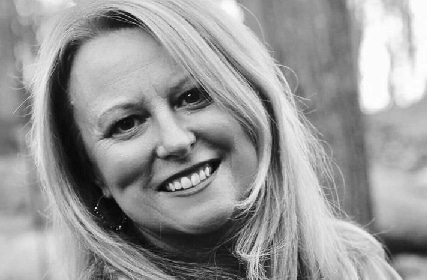Throughout my time as a psychotherapist specializing in end of life diseases, primarily cancer, I have spent many hours talking with both patients and medical teams about the importance of authentic communication and end of life planning. I see this kind of planning as life-giving. It allows the person and family to live with more ease, trusting the end will be filled with support, comfort, and all the things and people that matter to them.
When people or medical providers wait too long to have the discussion it can create unnecessary angst and many missed opportunities. Death does not have to be chaotic, nor should it be an “anticipated death.” People can live years with a terminal diagnosis, therefore the goals of care must be addressed at the first visit, and revisited every so often. I always like to re-address life goals when treatments change or people seem to be declining. People often share that they need a safe space to be real and it feels less exhausting to be protecting and pretending, like they may have to do with loved ones.
So often my patients fall into the “perfect patient syndrome,” which is highlighted in our documentary, “Dying is Not Giving Up.” This concept is discussed by Judy, in the film, who is living and dying with metastatic breast cancer in her 50s. Judy and many other patients do not want to disappoint their providers, which causes some to withhold honest conversations when things are not going well. Also, patients may withhold adverse side effects from providers as they know this could require discontinuation of treatment. Patients will share they get so many kudos for being “strong” and being an “exceptional responder” that they believe there is a subtle message to not be anything else.
How can we avoid the “perfect patient syndrome?” Stating up front to patients that they may not always agree with the plan of care, and are encouraged to say so. For those who were raised where their opinion was not honored or heard, it can be more difficult to express their feelings, especially to someone in power like a medical provider. For terminal patients, it is important to discuss that there will likely come a time when treatments will stop working, or cause more burden than benefit. It is recommended in the beginning to express to patients this is not anything they have done wrong.
This is personally why I dislike the phrase, “They failed treatment.” The amount of judgment within this phrase is damaging. Patients will trust providers most, and vice versa if open dialogue is had often and encouraged. When providers avoid difficult conversations, they can deprive the patient of important opportunities, such as visits with family out of state, writing legacy letters, and talking to their children. There will come a time in some disease processes where palliative care, and then hospice, are important treatment options. There is such a thing as referring “too late” to hospice. Most patients know within themselves when something is not right. It is when we empower them to have open dialogue with providers, not only will their dying be better, but also, their living.
Everyone lives until they die. Honest, open and non- judgmental conversations between patients and providers have the potential to make such a difference in care. Many have shared that they feel less alone when they are encouraged to be real in their appointments, even when the discussion is not what they hoped for. When it’s time to stop curative or maintenance treatments, our greatest human gift is to look right at the patient, and act like they are the only person on our caseload at that moment. As we hold the space for them to make the decision for hospice, it is important we convey to them that dying is never about giving up.
Kelly Grosklags’s personal encounter with traumatic loss as a young child motivated her life-long quest to minimize suffering and honor grief. Kelly is Board Certified in Clinical Social Work and completed a Fellowship in Grief Counseling from the American Academy of Healthcare Professionals and a Fellowship in Thanatology from Association of Death Education and Counseling. Kelly is executive producer of the short documentary, “Dying Is Not Giving Up.” She hosts the “See My Grief” podcast, and has authored, A Comforted Heart: An Oncology Psychotherapist’s Perspective on Finding Meaning and Hope During Grief and Loss.
Would you like to see more articles like this? Please consider supporting the Society by joining here: https://participatorymedicine.org/memberships/. Thank you!







Recent Comments